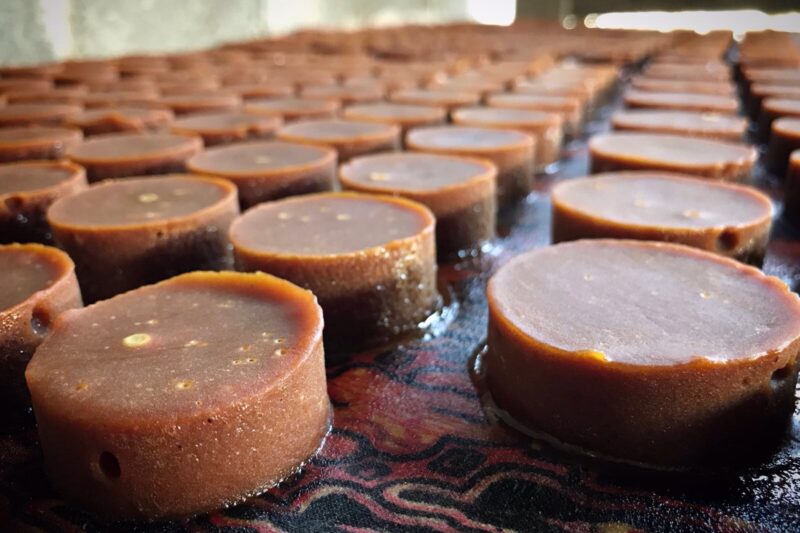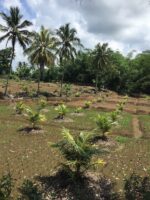Unilever delivers new coconut tree variety in Indonesia for sustainable sugar

pic: Unilever
An initiative to improve farmers’ livelihoods, income and safety, as well as ensuring a sustainable supply of coconut sugar, has been unveiled by Unilever, in planting a new type of coconut tree in Indonesia: the Genjah Kuning Bali, writes Neill Barston.
As the business revealed, coconut trees provide many ingredients used in everyday products, such as coconut oil, commonly found in food (including a broad range of confectionery and chocolate), drink and beauty products, and coconut sugar.
High-quality coconut sugar is also a key ingredient in Bango sweet soy sauce – a staple used every day by millions of Indonesian families. And in Indonesia, harvesting these crops is integral to so many people’s livelihoods and wellbeing.
But it is estimated that overall tree productivity in Asia – where most coconuts are grown – will decline by more than 80% by 2027; unless plantations are replaced with new, healthy seedlings and modern planting methods.
Indeed, coconut trees grow up to 30 metres high; dangerous for local farmers to climb and harvest. As a result, many of the plantations have been abandoned.
These trees are also older. Their sap flow is declining, meaning they receive fewer nutrients and less water. These need to be replaced with healthier saplings.
Now, Unilever’s industry-leading initiative, in partnership with the Indonesian National Coconut Institute, means that the process of collecting sap for coconut sugar is far quicker and safer for Indonesian farmers (notably women too).
These mini coconut trees only grow to ten metres, making it easier for harvesting, and due to their smaller size they only take around four years to grow, rather than seven. So, local farmers can continue to harvest, protecting their livelihoods while sourcing sustainable coconut sugar.

As of June 2022, Unilever has planted the equivalent of 3,300 hectares in collaboration with 3,600 smallholder farmers (in Lampung in South Sumatra, and Sukabumi and Pangandaran in West Java). This innovation is expected to benefit around 5,000 Indonesian households and by 2026, Unilever will aim to get half of its coconut sugar supply from this new variety of tree.
Helping farmers’ livelihoods
A training and fertiliser distribution programme equips smallholder farmers in Indonesia with the skills and knowledge they need to care for and nurture the trees, and increase resilience against climate change.
An app, SmartFarmPlus, also supports farmers and helps them to increase their yields. The app contains information about the plantations (how mature the trees are, for example) and this advice is shared with farmers.
The planting of the mini coconut trees is an example of the action Unilever has taken since signing up to the first Sustainable Coconut Charter, an initiative to improve incomes and livelihoods of smallholder farmers, enhance supply chain traceability, prevent deforestation and mitigate the climate crisis.
The charter gives farmers access to better markets, finance and technology, as well as increased productivity in a way that protects and regenerates the environment.
